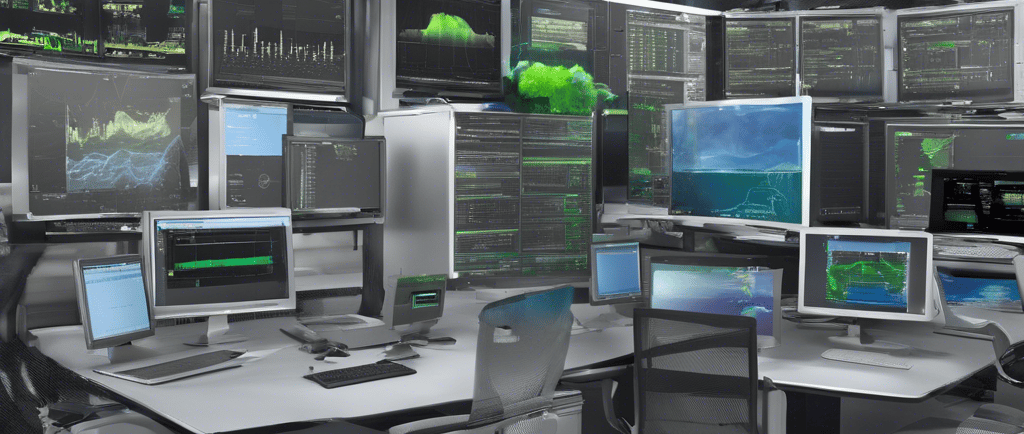Why Companies Need Carbon Accounting Management Software
7/8/20246 min read


Introduction
As the urgency to address climate change intensifies, businesses are under increasing pressure to demonstrate their commitment to sustainability. This involves not only reducing their carbon emissions but also managing their carbon footprint and conducting thorough Life Cycle Assessments (LCA). Additionally, the complexity of global supply chains necessitates meticulous supply chain carbon accounting. To effectively tackle these multifaceted challenges, companies need robust carbon accounting software. This technology enables precise measurement, monitoring, and management of carbon emissions across all aspects of their operations. Here are several compelling reasons why companies need carbon accounting software for carbon accounting, carbon footprint management, LCA, and supply chain carbon accounting.
For instance, a report by IBM showed that adopting carbon accounting software helped the company cut down its annual carbon dioxide emissions by 30%, illustrating the substantial impact of the software on emission reductions. Unilever noted a cost reduction of $200 million over three years after integrating carbon management software into their operations.
1. Accurate Carbon Accounting
Accurate carbon accounting is the foundation of any effective sustainability strategy. Carbon accounting software automates the data collection and calculation processes, ensuring high accuracy and consistency. Traditional methods, such as spreadsheets and manual data entry, are prone to errors and inefficiencies. In contrast, carbon accounting software streamlines these processes, reducing the likelihood of mistakes and enabling companies to focus on analysing the data to identify reduction opportunities.
2. Comprehensive Carbon Footprint Management
Managing a company’s carbon footprint involves tracking emissions from a wide range of activities, including energy use, transportation, waste management, and more. Carbon accounting software provides a centralised platform for consolidating all emissions-related data. This comprehensive view enables businesses to understand the full scope of their carbon footprint, identify hotspots, and implement targeted reduction strategies.
3. Effective Life Cycle Assessment (LCA)
Life Cycle Assessment (LCA) is a critical tool for evaluating the environmental impact of products and services throughout their entire lifecycle—from raw material extraction to disposal. Conducting an LCA involves collecting and analysing vast amounts of data, which can be complex and time-consuming. Carbon accounting software simplifies this process by automating data collection and analysis, providing accurate and actionable insights. This enables companies to make informed decisions about product design, materials, and processes to minimise environmental impact.
4. Supply Chain Carbon Accounting
According to a study by McKinsey, 90% of companies' impacts on the environment come from supply chains rather than from their direct operations. Global supply chains add another layer of complexity to carbon management. Companies must account for emissions not only from their own operations but also from their suppliers and partners. Carbon accounting software facilitates supply chain carbon accounting by integrating data from multiple sources and providing a holistic view of the supply chain’s carbon footprint. This allows businesses to identify and collaborate with suppliers to reduce emissions, improve sustainability practices, and enhance overall supply chain efficiency. Supply chain emissions can account for up to 80% of a company's total carbon footprint. Therefore, companies are inclined to work with their suppliers to reduce those emissions. In fact, 75% of companies that cut emissions in line with their ambition have joint reduction initiatives with most of their suppliers, and 54% have similar initiatives with most of their customers.
5. Regulatory Compliance
Governments and regulatory bodies worldwide are implementing stricter regulations and reporting requirements related to carbon emissions. Carbon accounting software helps companies stay compliant by providing accurate and timely data, simplifying the reporting process, and ensuring adherence to regulations. This reduces the risk of non-compliance penalties and helps businesses stay ahead of evolving regulatory landscapes. The European Union's Emissions Trading System (ETS) alone affects over 11,000 power stations and industrial plants in 31 countries. Regulations like the Corporate Sustainability Reporting Directive (CSRD), pushes more pressure on companies to report validated and accurate data. The Carbon Border Adjustment Mechanism (CBAM) imposes a carbon tax on all goods imported into EU markets, calculated based on the intensity of greenhouse gas emissions during the production process in the exporting country.
A survey conducted by Deloitte revealed that 70% of businesses using carbon management accounting software reported easier compliance with environmental laws, demonstrating the software’s efficacy in regulatory adherence.
6. Enhanced Decision-Making
Access to accurate and comprehensive emissions data enables better decision-making. Carbon accounting software includes analytics and reporting tools that provide insights into emissions trends, hotspots, and the effectiveness of reduction initiatives. With this information, companies can prioritise actions that will have the greatest impact on reducing their carbon footprint and improving overall environmental performance.
7. Cost Savings
Reducing carbon emissions often leads to cost savings by improving operational efficiency and reducing energy consumption. Carbon accounting software helps identify inefficiencies and areas where energy use can be reduced, ultimately lowering operational costs. Additionally, companies can benefit from incentives such as tax breaks and subsidies offered by governments and other organisations for demonstrating a commitment to sustainability.
8. Enhanced Corporate Reputation
Consumers, investors, and other stakeholders are increasingly concerned about the environmental impact of the companies they support. Businesses that actively measure and reduce their carbon emissions, carbon footprint, and supply chain emissions can enhance their corporate reputation and build stronger relationships with stakeholders. Carbon accounting software provides the transparency and accountability that stakeholders are looking for, helping companies demonstrate their commitment to sustainability.
9. Risk Management
Climate change poses significant risks to businesses, including regulatory risks, reputational risks, and physical risks such as extreme weather events. By effectively managing their carbon emissions and footprint, companies can mitigate some of these risks. Carbon accounting software enables businesses to track progress towards emissions reduction targets and ensure they are prepared for future regulatory changes and stakeholder expectations.
10. Support for Sustainability Goals
Many companies have set ambitious sustainability goals, such as achieving net-zero emissions by a certain date. Carbon accounting software is essential for tracking progress towards these goals. It allows companies to set benchmarks, monitor performance, and adjust strategies as needed to stay on track. This software also facilitates the reporting of progress to stakeholders, demonstrating a commitment to achieving sustainability objectives. According to the United Nations Global Compact, over 1,000 companies have committed to science-based targets for reducing emissions.
11. Financial Institutions
Financial institutions are increasingly drawn to investing in sustainable companies for several compelling reasons. Firstly, these companies often demonstrate a proactive approach to managing environmental, social, and governance (ESG) risks, which can mitigate potential liabilities and enhance long-term stability. Secondly, sustainable practices are seen as indicators of operational efficiency and innovation, potentially leading to reduced costs and increased profitability over time. Thirdly, there is growing evidence that companies with strong ESG performance are better positioned to attract capital and talent, thereby improving overall resilience and competitiveness in the market. Lastly, investing in sustainable companies aligns with broader societal expectations and regulatory trends, reducing reputational risks and ensuring compliance with evolving standards. These factors collectively drive financial institutions to view sustainable investments not only as ethical choices but also as prudent financial decisions that can deliver sustainable returns and mitigate risks in a changing global landscape. Sustainable funds outperformed traditional funds, with sustainable equity funds showing a 10.9% median return compared to traditional equity funds' 8% in the first half of 2022.
12. Perspective of SMEs
From an SME's perspective, considering carbon software can be a strategic decision despite limited budgets. Firstly, it enables precise measurement and management of carbon emissions, crucial as environmental regulations tighten and stakeholders demand transparency. By tracking emissions across operations and supply chains, SMEs can pinpoint areas for efficiency gains, such as optimising energy use or reducing waste, potentially leading to cost savings. Secondly, adopting carbon software showcases their commitment to sustainability, a growing factor in attracting eco-conscious customers and investors, thereby enhancing competitiveness. Thirdly, it helps SMEs prepare for future regulatory shifts and carbon pricing, mitigating financial risks associated with non-compliance or carbon-intensive practices. While budget constraints are common, the long-term benefits of reduced operational costs and enhanced market appeal justify the initial investment in carbon software for SMEs aiming to align with sustainability goals and maintain resilience in evolving markets.
Conclusion
In an era where sustainability is becoming a critical business imperative, carbon accounting software is an invaluable tool for companies. It enhances accuracy, efficiency, and compliance while providing comprehensive data management and valuable insights for decision-making. By investing in this technology, businesses can not only reduce their carbon footprint and operational costs but also improve their corporate reputation, manage risks, and achieve their sustainability goals. As the pressure to address climate change continues to grow, carbon accounting software will play an increasingly important role in helping companies navigate the path to a more sustainable future.
Einvala offers a state of the art carbon accounting software for companies wanting to start measuring their scope 1,2 & 3 emissions. The tool is able to calculate emissions in your own operations, comprehensive footprint analysis & LCA and dynamic tools for your suppliers to report their emissions, giving you a deep dynamic overview of your supply chain footprint, making it easier for your organisation to comply with customer inquiries and regulations.
Einvala offers state-of-the-art carbon accounting software for companies looking to measure their scope 1, 2, and 3 emissions. The tool can calculate emissions from your own operations, conduct comprehensive footprint analyses and LCAs, and provides a dynamic tool for your suppliers to report their emissions. This gives your organisation a detailed, dynamic overview of carbon footprint, making it easier to comply with customer inquiries and regulations. Are you intrigued? Reach out to learn more.
